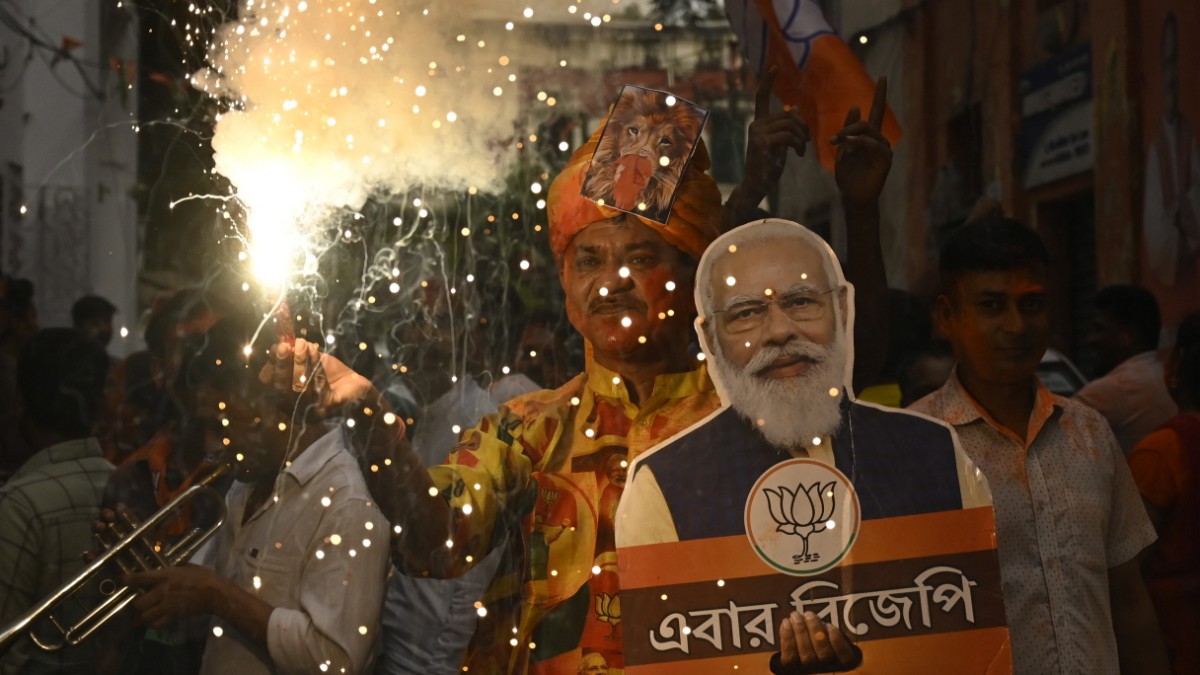Other parties have been waiting for years for the mood in India to turn against Narendra Modi or the Hindu nationalist “Bharatiya Janata Party” (BJP). There is and must be a reason: the failure of the pandemic, the farmers’ rebellion that paralyzed Delhi and the surrounding areas for months. Infrastructure projects are implemented too hastily, sometimes even causing loss of life. Moreover, as elsewhere in the world, politics is deliberately polarizing in order to win over voters – and thereby further dividing Indian society.
A section of this population is now being called upon to vote, and in three Indian states, Chhattisgarh, Madhya Pradesh and Rajasthan, the BJP has even made huge gains. Counting is still underway in a fourth state. In Rajasthan and Chhattisgarh, the BJP won easily ahead of the National Congress, the party that shaped India for decades. Opinion polls show nearly identical election results.
Human rights suffer greatly in the “Temple of Democracy”.
Last summer, an opposition alliance of 28 parties led by the National Congress came together to take on the BJP under the acronym INDIA. They then lost the southern state of Karnataka to the National Congress. But the latest results could be seen as a setback for the alliance. Both parties have promised voters, among other things, cash payments, farm loan forgiveness, subsidies and insurance coverage.
“Our country has rejected negativity!” the BJP party account quoted the prime minister as saying at Platform badly damaged by the BJP in recent years. Most indices measuring human rights or democracy show that the human rights situation in India has deteriorated massively in the nine years of Modi’s rule.
Although the BJP government has had to defend itself internationally for weeks against American and Canadian accusations that it ordered killings in both countries, cooperation between Delhi and Washington has become closer. This is forced by Beijing’s common enemy and the world situation in general. Not only has the world become so complicated recently, but only now does this awareness seem to be starting to reach Europe.
The Prime Minister of India remains the most popular head of state in the world
Modi was invited as guest of honor on a national holiday in France this year. Germany is negotiating a submarine deal with India. This is despite the fact that Modi continues to maintain good contacts with Putin and India engages in brisk trade with Russia – especially in arms and energy. But foreign policy is not a factor that drives voters to vote for the BJP. Economic numbers are pointing upwards. This is also seen in many areas of the country. Even if a tunnel collapses during construction – at least it is being built.
Narendra Modi retained his top spot as the world’s most popular head of state with an approval rating of 76 percent this year, according to an Indian business magazine. mint candy reported this summer, citing the US consulting firm “Morning Consult”.
76 percent is a huge number; according to Asian news agency ANI, US President Joe Biden received 40 percent approval, and Canadian Prime Minister Justin Trudeau received 37 percent approval.
Modi is seeking a third term in office in the upcoming national elections
Home Minister Amit Shah, also of the BJP, tweeted about this: “This is not only a testament to the success of Modi’s doctrine in foreign policy, but also global recognition of Modi’s tireless achievements in lifting millions of people out of poverty.” his selfless efforts to raise their standard of living and for the community to continue to believe in him.”
This kind of self-congratulation is common in Asian countries. However, Modi took it to a higher level. Anyone who traveled to the G-20 summit in Delhi in September saw that the entire city was covered in portraits of Modi.
Anyone who looked closely could also see the lotus flower symbol on all the advertising media, event announcements, and partition walls. The lotus flower appears on election ballots in India as a symbol of the BJP. Externally, the G20 is an advertisement for Modi as the leader of the Southern countries, but internally the G20 is part of an election campaign.
This weekend’s election results are a boost for Modi, who is seeking a third term in office in upcoming national elections. These elections will be held in April and May 2024, which is the time needed to collect and count more than 900 million votes from eligible voters in India. The opposition Congress party, which campaigned openly on the ballot measure, wants to meet its INDIA alliance coalition partners on Wednesday to discuss how something can be done to address this.

“Subtly charming web junkie. Unapologetic bacon lover. Introvert. Typical foodaholic. Twitter specialist. Professional travel fanatic.”







